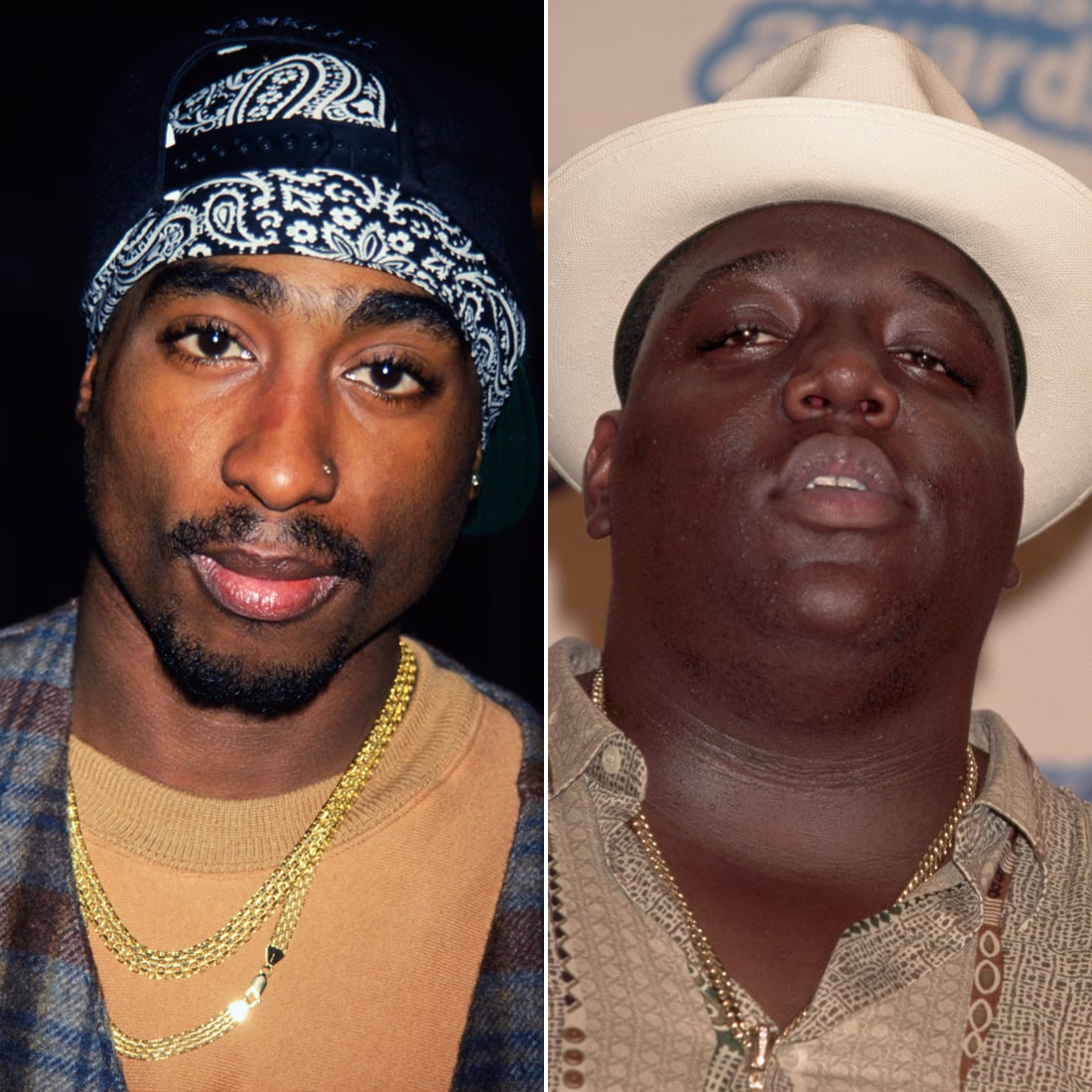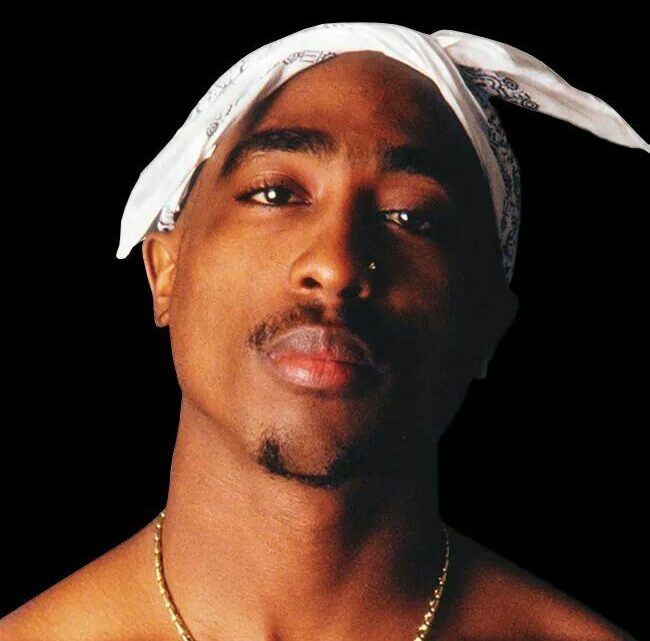2Pac Death Age: Unveiling The Truth Behind Tupac Shakur's Tragic Demise
Tupac Shakur's death remains one of the most talked-about events in music history, sparking debates and conspiracy theories that continue to this day. Known as 2Pac, his life and legacy have left an indelible mark on the world of hip-hop and pop culture. In this article, we delve into the details surrounding his death, exploring the facts, myths, and the lasting impact of his work.
Tupac Shakur was not only a rapper but also an actor, poet, and activist whose voice resonated with millions around the globe. His music addressed social issues, inequality, and the struggles faced by marginalized communities. However, his untimely death at the age of 25 cut his career short, leaving fans heartbroken and questioning the circumstances surrounding his passing.
This article will provide a comprehensive look into 2Pac's death, focusing on his age at the time, the events leading up to his demise, and the aftermath. We'll also explore his biography, contributions to music, and the controversies that surrounded his life. Let's uncover the truth behind one of the most iconic figures in hip-hop history.
Read also:Everything You Need To Know About Nys Professional License Renewal A Complete Guide
Table of Contents
- Biography of 2Pac
- 2Pac's Death Age
- Key Events Leading to His Death
- Conspiracy Theories Surrounding His Death
- Legacy and Impact
- Musical Contributions
- Acting Career
- Influence on Hip-Hop
- Interesting Facts About 2Pac
- Conclusion
Biography of 2Pac
Tupac Amaru Shakur, better known by his stage name 2Pac, was born on June 16, 1971, in East Harlem, New York City. His parents, Afeni Shakur and Billy Garland, were both active members of the Black Panther Party. From a young age, Tupac was exposed to political activism and social justice, which would later become central themes in his music.
Biodata and Personal Information
| Full Name | Tupac Amaru Shakur |
|---|---|
| Birth Date | June 16, 1971 |
| Birth Place | East Harlem, New York City |
| Death Date | September 13, 1996 |
| Death Place | Las Vegas, Nevada |
| Age at Death | 25 years |
Tupac's upbringing was marked by challenges, including poverty and the absence of his father. Despite these obstacles, he developed a passion for the arts, attending the Baltimore School for the Arts where he honed his skills in acting and poetry. His journey into the world of music began in the late 1980s, and he quickly rose to fame with his powerful lyrics and charismatic presence.
2Pac's Death Age
Tupac Shakur was only 25 years old when he tragically passed away on September 13, 1996. His untimely death shocked the world and left a void in the music industry that many believed could never be filled. At such a young age, 2Pac had already made a significant impact, releasing five studio albums and numerous hit singles that continue to resonate with fans today.
His age at the time of his death is often highlighted as a stark reminder of the dangers faced by artists in the rap industry. The violence and rivalry that plagued the East Coast and West Coast hip-hop scenes during the 1990s played a significant role in shaping the events that led to his demise.
Key Events Leading to His Death
The events leading up to Tupac Shakur's death are complex and intertwined with the turbulent history of the hip-hop world during the 1990s. On September 7, 1996, Tupac attended a boxing match between Mike Tyson and Bruce Seldon in Las Vegas. After the match, he was involved in an altercation outside the MGM Grand Hotel and Casino, where he and his entourage confronted a group of individuals.
Las Vegas Shooting Incident
- September 7, 1996: Tupac is involved in a confrontation with a group of people outside the MGM Grand Hotel.
- September 11, 1996: While driving through Las Vegas with his friend, Tupac is shot multiple times in a drive-by shooting.
- September 13, 1996: Tupac succumbs to his injuries at the University Medical Center in Las Vegas.
These events unfolded in a matter of days, culminating in the tragic loss of one of the most influential artists of his generation. The circumstances surrounding his death remain shrouded in mystery, with numerous theories attempting to explain what truly happened that night.
Read also:Discover The Power Of Point All A Comprehensive Guide To Unlocking Success
Conspiracy Theories Surrounding His Death
Since Tupac Shakur's death, numerous conspiracy theories have emerged, questioning the official narrative and suggesting that he may still be alive. Some theories propose that his death was staged as part of a larger plan to escape the pressures of fame, while others point to deeper involvement from organized crime or law enforcement.
Common Conspiracy Theories
- Fake Death Theory: Believers argue that Tupac faked his death to start a new life away from the public eye.
- Gang Rivalry: The shooting is often attributed to tensions between rival gangs, specifically the Bloods and the Crips.
- Record Label Involvement: Some suggest that record labels may have had a role in orchestrating the events leading to his death.
While these theories continue to circulate, there is no concrete evidence to support them, and the official cause of death remains a gunshot wound sustained during the drive-by shooting.
Legacy and Impact
Tupac Shakur's legacy extends far beyond his music, influencing generations of artists and activists. His ability to address social issues through his lyrics has inspired countless individuals to speak out against injustice and inequality. Even after his death, Tupac's work continues to resonate, with posthumous albums and projects keeping his memory alive.
His impact on the music industry cannot be overstated, as he paved the way for future artists to use their platforms for social change. Tupac's commitment to authenticity and his willingness to tackle controversial topics have cemented his place as one of the greatest voices in hip-hop history.
Musical Contributions
Tupac Shakur's musical career was marked by a series of groundbreaking albums and hit singles that defined the sound of the 1990s. His debut album, "2Pacalypse Now," released in 1991, set the tone for his future work, addressing issues such as police brutality, racism, and poverty.
Notable Albums and Songs
- "2Pacalypse Now" (1991): Tupac's debut album, featuring tracks like "Brenda's Got a Baby" and "Trapped."
- "All Eyez on Me" (1996): A double album that includes iconic songs like "California Love" and "How Do U Want It."
- "The Don Killuminati: The 7 Day Theory" (1996): Released under the pseudonym Makaveli, this album features tracks like "Hail Mary" and "Until the End of Time."
Tupac's music was not only entertaining but also deeply impactful, using his platform to shed light on important issues affecting marginalized communities.
Acting Career
In addition to his music career, Tupac Shakur was also a talented actor, appearing in several films throughout the 1990s. His performances showcased his versatility as an artist and his ability to convey complex emotions on screen.
Films Featuring Tupac
- "Juice" (1992): Tupac's breakout role as Bishop, a troubled youth navigating the streets of New York City.
- "Poetic Justice" (1993): Co-starring alongside Janet Jackson, Tupac delivered a powerful performance as Lucky, a struggling poet.
- "Gridlock'd" (1997): Released posthumously, this film features Tupac alongside Tim Roth in a story about drug addiction and rehabilitation.
Tupac's acting career further solidified his status as a multifaceted artist, capable of excelling in multiple mediums.
Influence on Hip-Hop
Tupac Shakur's influence on hip-hop culture is immeasurable, with his work continuing to inspire new generations of artists. His ability to blend raw storytelling with poetic lyricism set a new standard for the genre, encouraging others to use their music as a tool for social change.
His dedication to authenticity and his willingness to confront controversial topics have left a lasting impact on the industry, influencing countless artists to follow in his footsteps. From his iconic look to his powerful messages, Tupac remains a symbol of resilience and creativity.
Interesting Facts About 2Pac
Here are some lesser-known facts about Tupac Shakur that highlight his multifaceted personality and contributions to the world:
- Tupac was named after Túpac Amaru II, a Peruvian revolutionary who fought against Spanish colonial rule.
- He was an avid reader, with a particular interest in philosophy, politics, and literature.
- Tupac wrote poetry from a young age, with many of his poems later being published in the book "The Rose That Grew from Concrete."
- He was fluent in multiple languages, including Spanish and Swahili.
- Tupac's mother, Afeni Shakur, posthumously released several albums and projects to keep his legacy alive.
These facts underscore the depth and complexity of Tupac Shakur's life and work, revealing a man who was far more than just a rapper.
Conclusion
Tupac Shakur's death at the age of 25 remains one of the most tragic losses in music history. His life and career were marked by a dedication to authenticity, social justice, and artistic expression, leaving an indelible mark on the world of hip-hop and beyond. While the circumstances surrounding his death continue to be debated, his legacy as a trailblazer and advocate for change lives on through his music and the countless lives he touched.
We invite you to share your thoughts and reflections in the comments below. If you enjoyed this article, consider exploring other content on our site that delves into the lives and legacies of influential figures in music and culture. Together, let's keep the conversation alive and honor the memory of those who have made a lasting impact on our world.

